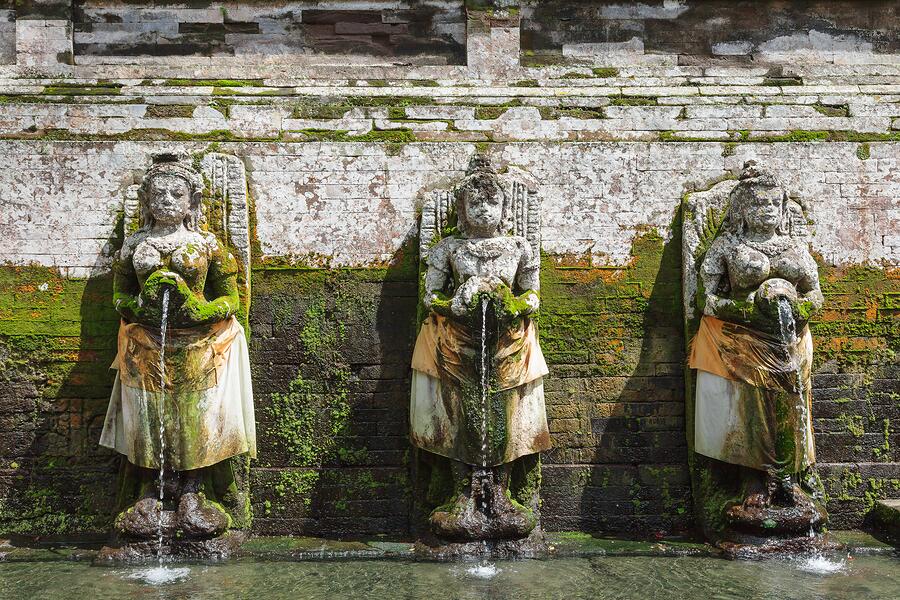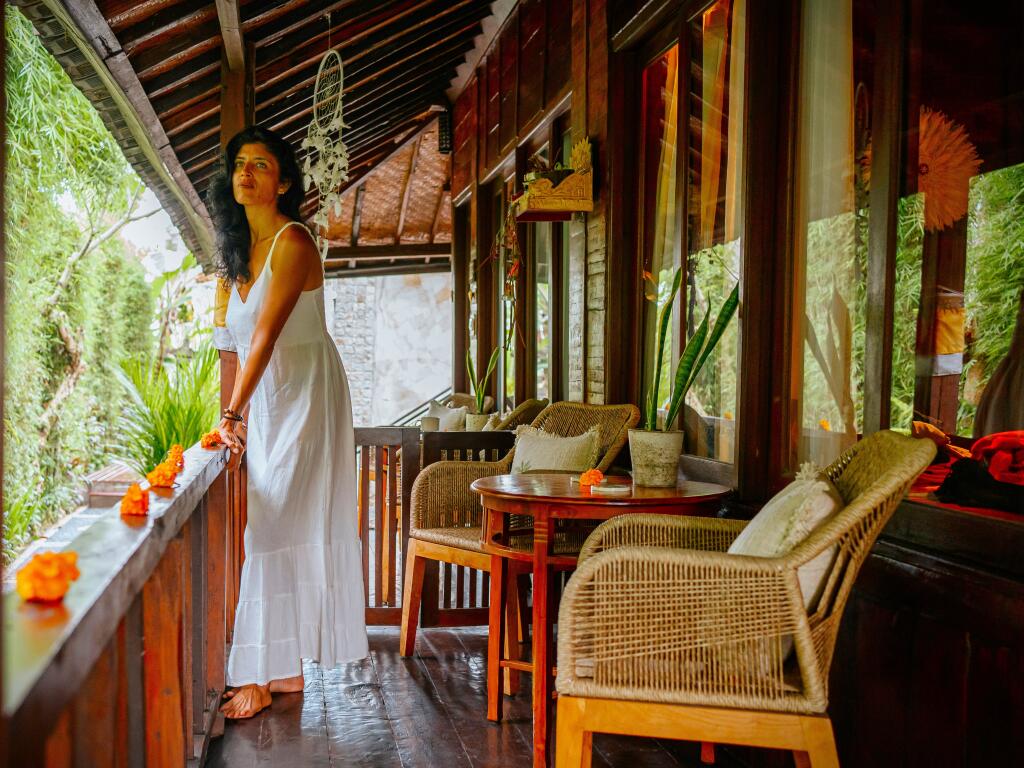Elephant Cave Temple
Located on the western fringe of Bedulu Village just minutes from central Ubud, Elephant Cave Temple (known locally as Goa Gajah) is a historically significant archaeological site and popular Bali tourist attraction. Despite its name, you won't find any friendly elephants here, unless you count the stone figure of Ganesh, a Hindu lord with an elephant's head. A special cultural place to visit, tourists can explore the relics contained in the courtyard, meditation cave, fountains, bathing pools and intricate rock-wall carvings.

Built as a spiritual place for meditation, Elephant Cave Temple dates as far back as the 8th century. Built on a hillside where two streams met to form a river junction, the temple was built as a sacred site for prayer and enclosed meditation. A striking sight, the cave gets its name from the carvings that decorate its exterior including the image of an elephant concealed in the huge head of Kala that creates the entrance to the cave. Elephant Cave is a little-known attraction that must be seen to be believed and is a great way to experience this fascinating ancient culture away from the main tourist areas.
As you reach the base of the temple you will come upon the large meeting hall and a collection of large ancient stone carvings, some which have been restored to their former glory. Excavated in 1954, the pool also features five out of a reported seven statues that depict Hindu angles clutching vases which act as waterspouts. Throughout the temple complex, a variety of structures bare Hindu influences which date back to the 10th century as well as relics which feature some elements of Buddhism that date back even earlier, as far back as the 8th century.
The cave itself is actually quite shallow, yet inside you will find three stone idols wrapped individually in yellow, red and black cloth. Visitors may be curious about the black soot lines that mark the cave's walls, however despite their mysterious appearance they are merely the result of incense burning. Those with a keen eye will be able to spot a number of indentations which are a testament to the places where priests once sat to meditate.
Access to the main grounds of Elephant Cave Temple is down a flight of stairs from a roadside parking area lined with refreshment kiosks, souvenir shops and art stalls. The Elephant Cave Temple complex is open daily from 8am to 4pm with entry costing approximately 15,000 Rupiah (AU$1.50) for adults and 7,500 Rupiah (AU75c) for children.



